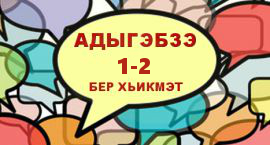
Circassians speak out  YAVUZ BAYDAR The Circassians have been the silent minority, until now. They broke their silence over the weekend with powerful words.
The Circassians in Turkey are a rather large but scattered group who have their roots in the Caucasus. Although Turkey’s central administration was never willing to admit their presence and their number, it is a fair estimate that we are talking a group of some 2 to 3 million. Others from within the community claim the number to be as high as 4.5 million. Known also as Adyghe or Adygs, these noble mountain tribes had fought against Russian rule for centuries before they were slaughtered en masse, displaced and deported to the Ottoman territories during the final war between Russia and the Ottoman Empire in 1860–1864. They lost their ancient land, had their culture wiped out and had vast swaths of their kind annihilated. All this, with very little doubt, constitutes what many call the first genocide against an ethnic-religious group (according to the definition of the 1948 convention). It set a pattern for the coming decades of similar atrocities against Filipinos, the Herero and the Anatolian Armenians. The Circassians are a group that was successful in suppressing the pain of losing their homelands. There are only half a million of them left in the northern Caucasus now. The largest diaspora is in Turkey, followed by Syria, Jordan and Israel. Circassians were an important part of the Turkish Republic’s nation-building early of the 1920s. Having been a feared warrior people, they did what they did best after being chased away across the Black Sea to İstanbul, Samsun and Trabzon. The men joined the Ottoman army and later the Turkish Armed Forces (TSK) and also had a hand in the formation of the first intelligence service of the republic. But, as with the Kurds, they were soon abandoned by the Kemalist (post-Committee of Union and Progress [CUP]) elite and had their schools closed, their language publicly banned and names “Turkified.” The names of their towns and other settlements were also consequently altered. But, again as with the Kurds, republican assimilation policies were unsuccessful. The Circassians were silent, “abiding,” but with the help of a strong culture and a profound nostalgia for their homeland, they passed the mother tongue on from one generation to the other. “We are a dying culture,” I was told repeatedly when the Circassians from various cities of Anatolia met in the province of Kocaeli (east of Istanbul) for the first time in a massive “workshop” to vent their sentiments and demands. They could raise their voices for the first time last year, albeit it for a short-lived period of time. In March and April 2011, they came out into the open and gathered in Ankara and İstanbul. But the third gathering planned in Eskişehir, where the Circassian population is considerable, the authorities said “no,” and banned it. During the two-day meeting, I was provided with a window to an unknown culture. They spoke their language eagerly, spoke of the tragedy of a nation, fighting behind closed doors (at homes) to prevent a loss of identity. They were also deeply aware and critical in their analysis of their recent history. The bitterness I felt was based on two things: all of the participants were disappointed with the government’s policy of “openings” (“Turkish glasnost”) and felt ignored by Ankara. “Nobody from the government bothered to contact us in they way they contacted the Kurds, Alawites and non-Muslims,” was the sentiment expressed during the sessions. Now, under the banner of the “Initiative for Circassians’ Rights,” they make a powerful statement. When I read the opening statement, I had difficulty in believing the toughness of their rhetoric, comparable only to the rhetoric coming from the Kurds. It deplored the abolishment of Circassian cultural rights (education and mother tongue) and “liquidation of the values of their identity.” When the statement touched upon the subject of the founding fathers of 1923 (Mustafa Kemal Atatürk in particular), no words were minced. “The founding elite deceived the Circassian brothers in arms, silenced them, sent them into exile in order to implement the paradigm of Turkishness,” said one speaker. We were given example after example from that time how the demonization of “Circassian” was implemented(due to some ethnic figures who had challenged Atatürk’s authority during the war) successfully. What do they want? “Positive discrimination. What the other ethnic groups of the Anatolian mosaic want,” was the answer. “We demand non-mandatory education of our native tongue and 24/7 broadcasts in our language. We want our original surnames and the names of our towns restored. We want cultural centers for Circassians. We want the reputations of our forefathers restored and an end to the demonization.” This almost completes the speaking-out process. Now, almost every ethnic group has spoken out, the toothpaste is out of the tube. Glasnost a la Turk continues. They all watch, with anticipation, whether the government still means business and is up to the job. _______________________ TODAYS ZAMAN, 26-02-2012
|
|
3299 kez okundu
YorumlarHenüz yorum yapılmamış. İlk yorumu yapmak için tıklayın |



